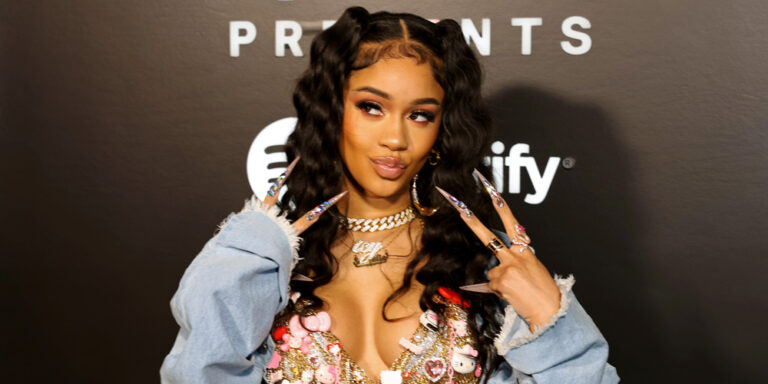Saweetie Opens Up About Regrettable Purchases and Financial Lessons
Introduction
Saweetie, the talented rapper known for her hit song “Best Friend,” candidly discussed her financial missteps during a recent appearance on the Networth & Chill podcast. At 32 years old, the artist reflected on her journey and how her relationship with money evolved following her rise in the music industry.
Initial Frugality
In her early career, Saweetie described herself as “really frugal.” She dedicated herself to her craft and worked tirelessly to achieve success. However, a pivotal moment arrived when she contacted her accountant for an update on her earnings, revealing a substantial amount of money made from her music career.
Discovering Wealth
“I had so much money, and I was like, ‘Where the hell did I get all this money from?’” Saweetie recounted. This realization marked a turning point in her financial decisions. She admitted that she was unaware of her financial growth, as she was focused solely on her grind.
Mistakes Made in Wealth
After gaining insight into her finances, Saweetie found herself making significant money mistakes. She compared her reaction to that of a shark smelling blood, indicating that her newfound financial freedom led to impulsive spending. “I should have never made that call,” she stated, reflecting on her lack of attention to her financial growth.
Generosity and Boundaries
With her increased wealth, Saweetie felt compelled to help those around her. “If someone close to me needed money, I’d give them a lump sum,” she explained, noting that her generosity came with consequences. She realized that by providing substantial sums, expectations grew, prompting her to set boundaries with friends and family who assumed her wealth was unlimited. “Some people thought that money was just growing off of trees,” she explained.
Seeking Financial Guidance
As a result of her past mistakes, Saweetie has since made significant changes in how she manages her money. She has hired a financial advisor to assist her with better financial decisions. “For me, as long as I have enough to pay my bills, I’m good,” she shared, emphasizing her newfound approach to financial stability, which prioritizes sensible spending over impulsive generosity.
Conclusion
Saweetie’s experiences serve as a reminder of the importance of financial literacy, especially for those new to wealth. Understanding how to manage finances and establish boundaries can help prevent the pitfalls of sudden financial success. As she continues to grow both as an artist and an individual, Saweetie’s journey provides valuable insights for her fans and aspiring artists alike.

